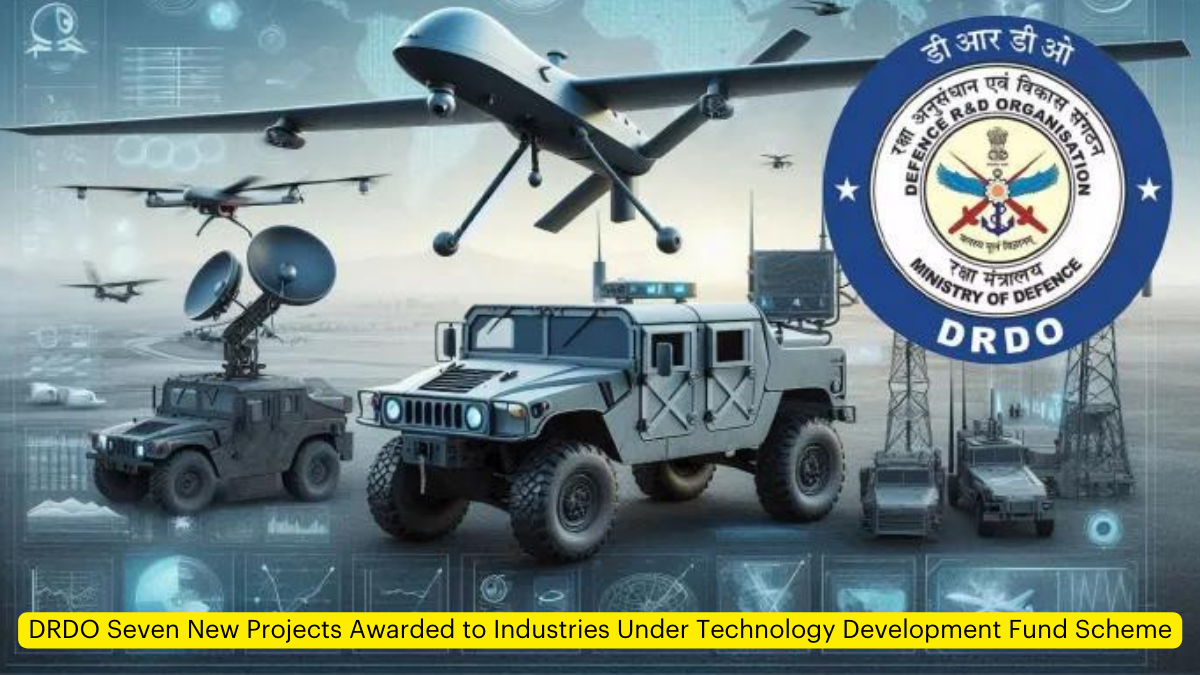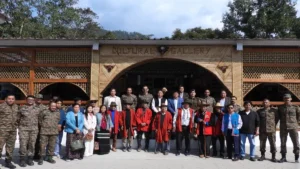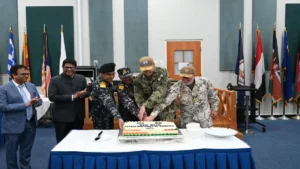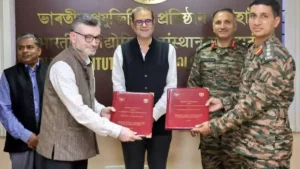The Defence Research & Development Organisation (DRDO) has taken a significant step towards promoting self-reliance in the defense sector by awarding seven new projects to industries under the Technology Development Fund (TDF) scheme. These projects aim to address various requirements of the Armed Forces and the aerospace & defense sectors, while simultaneously nurturing the growth of industries, particularly MSMEs and start-ups, in these domains.
Overview of the Technology Development Fund Scheme
The TDF scheme is a DRDO initiative designed to foster indigenous technology development in the defense and aerospace sectors. By awarding projects to domestic industries, the scheme aims to:
- Strengthen the military-industrial ecosystem
- Promote self-reliance (Aatmanirbharta) in defense technology
- Encourage innovation among MSMEs and start-ups
Detailed Project Descriptions
1. Indigenous Scenario and Sensor Simulation Toolkit
Awarded to: Oxygen 2 Innovation Pvt Ltd, Noida (Start-up)
Project Objective: To develop an indigenous toolkit for simulator training of pilots in realistic scenarios.
Key Features:
- Enables full mission planning
- Facilitates large force engagement simulations
- Enhances pilot training effectiveness through realistic scenario creation
Significance: This project will reduce dependency on foreign simulation technologies and improve the quality of pilot training in the Indian Armed Forces.
2. Underwater Launched Unmanned Aerial Vehicle
Awarded to: Sagar Defence Engineering Pvt Ltd, Pune
Project Objective: To create a versatile marine battlefield accessory deployable in multiple combat roles.
Key Applications:
- Intelligence, Surveillance, and Reconnaissance (ISR)
- Maritime Domain Awareness (MDA)
Significance: This technology will enhance the Indian Navy’s capabilities in underwater operations and maritime surveillance.
3. Long-range Remotely Operated Vehicles for Detection & Neutralisation
Awarded to: IROV Technologies Pvt Limited, Kochi (Start-up)
Project Objective: To develop dual-use systems for underwater object management.
Key Capabilities:
- Detection, classification, and localization of underwater objects
- Neutralization of potential threats
- Keeps key assets away from suspected operational areas
Significance: This project will improve underwater security and reduce risks to human operators in potentially dangerous scenarios.
4. Development of Ice Detection Sensor for Aircraft
Awarded to: Craftlogic Labs Pvt Ltd, Bengaluru
Project Objective: To create a sensor for detecting in-flight icing conditions.
Functionality:
- Detects super-cooled water droplets that freeze on aircraft external surfaces
- Triggers the aircraft’s anti-icing mechanism
Significance: This technology will enhance flight safety, particularly in adverse weather conditions.
5. Development of Radar Signal Processor with Active Antenna Array Simulator
Awarded to: Data Pattern (India) Limited, Chennai
Project Objective: To enable deployment of multiple target systems for testing short-range aerial weapon systems.
Key Features:
- Serves as a basic building block for larger radar systems
- Enhances testing and evaluation capabilities for weapon systems
Significance: This project will improve the testing and development of radar and weapon systems, contributing to more effective defense capabilities.
6. Development of Indian Regional Navigation Satellite System-based Timing Acquisition & Dissemination System
Awarded to: Accord Software & Systems Pvt Ltd, Bengaluru
Project Objectives:
- Enable indigenization of timing acquisition and dissemination systems
- Utilize the Indian Constellation for acquiring time
- Develop customized and flexible timing systems as per range requirements
Significance: This project will reduce dependency on foreign satellite systems and enhance India’s strategic autonomy in navigation and timing technologies.
7. Development of Graphene-Based Smart & E-textiles for Multifunctional Wearable Applications
Awarded to: Alohatech Private Limited, Coimbatore (Start-up)
Project Objective: To develop conductive yarn and fabric-making processes using graphene nanomaterials and conductive inks.
Expected Outcome: Advanced nanocomposite materials-based E-textiles for practical clothing applications.
Significance: This project has the potential to revolutionize military uniforms and equipment, enhancing soldier capabilities and protection.
Important takeaways for all competitive exams
- Defence Research and Development Organisation Chairman: Samir V Kamat;
- DRDO was formed in 1958.




 Indian Army to Host First International ...
Indian Army to Host First International ...
 Indian Navy Assumes Command of Combined ...
Indian Navy Assumes Command of Combined ...
 Agneevasthraa Signs MoU with Indian Army...
Agneevasthraa Signs MoU with Indian Army...








